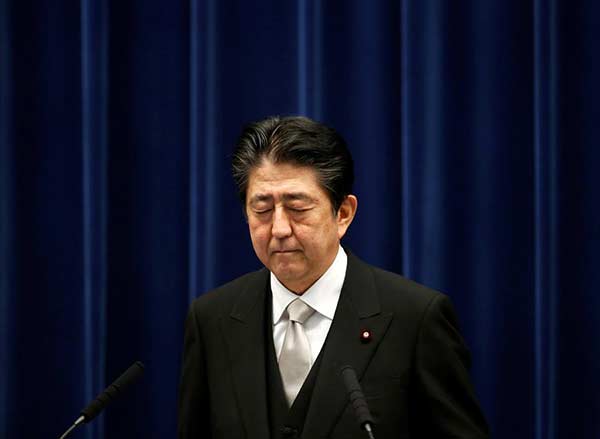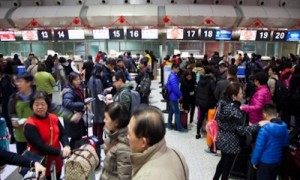|
Japan's Prime Minister Shinzo Abe attends a news conference after reshuffling his cabinet, at his official residence in Tokyo, Japan, August 3, 2017. [Photo/Agencies]
|
What Japan's defense white paper, which was released on Tuesday, says about China is an about-face to what Japanese Foreign Minister Taro Kono said to his Chinese counterpart Wang Yi on Monday.
Kono said Japan attaches importance to China, and the two countries can make important contributions to revitalizing Asia and promoting world peace by working hand-in-hand. Japan's defense white paper, on the other hand, portrayed a threatening China seeking to expand its military influence and territorial claims.
It is true Japan attaches importance to China, but in a malicious manner.
While China and the members of the Association of Southeast Asian Nations made headway by concluding the framework for a Code of Conduct in the South China Sea, Japan along with the United States and Australia jointly released a statement pointing an accusing finger at China for the territorial disputes in the South China Sea.
Although it, as an outsider, has nothing to do with the South China Sea disputes, Japan spares no efforts in trying to stir up trouble and hinder China and the other territorial claimants in the waters from resolving their disputes through dialogues.
By seizing every opportunity to paint China as a "military threat" in the region, especially to Japan, the Abe administration hopes to be able to push though changes to the country's pacifist Constitution and play a bigger role as an accomplice of the US in the latter's efforts to undermine China's influence in the region, in order to serve Tokyo's ambitions for regional leadership.
Japan's upending of China's policy of seeking dialogue to resolve the disputes flies in the face of the progress China has made with the ASEAN member states on the issue of the South China Sea, the improvement of relations with the Philippines being a case in point.
Japan should stop being double-faced, which will do it no good and only betray the fact that it is the real troublemaker in the region and thus the real threat to regional and world peace.
As Foreign Minister Wang Yi said to Kono on Monday, China hopes Japan matches its words with actions and translates its positive stance about improving ties with China into tangible policies and actions.








